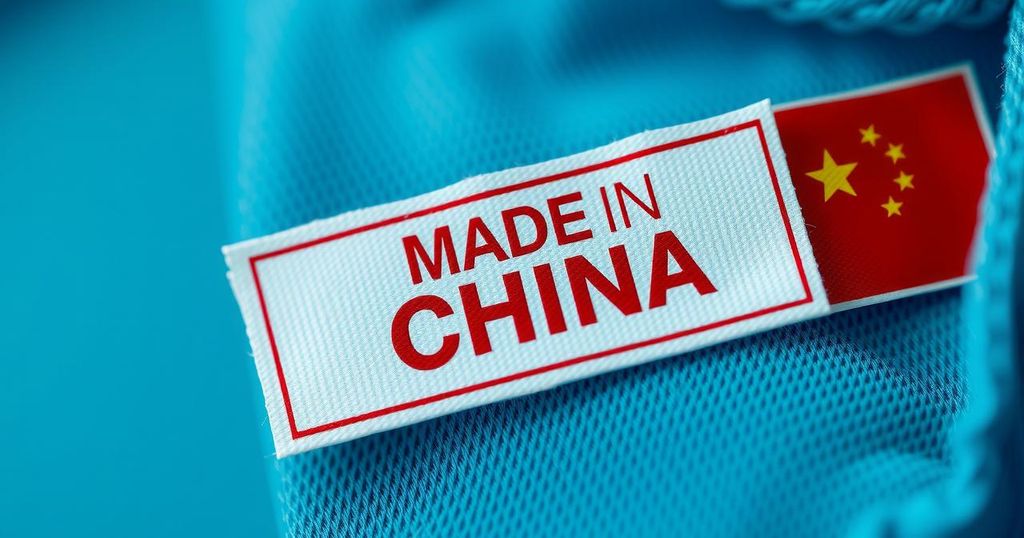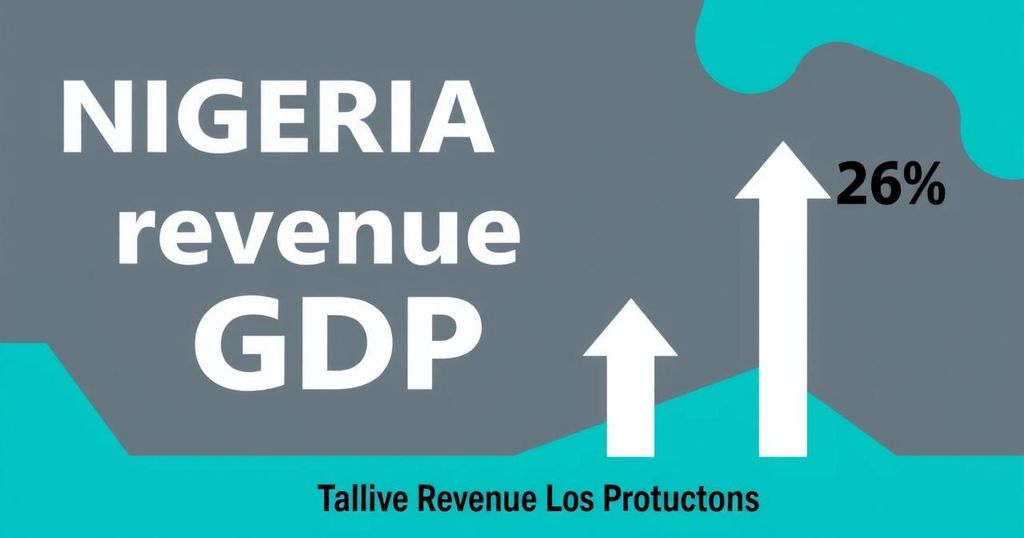The Impact of Chinese Manufacturing on U.S. Election Merchandise Trade
The U.S. presidential election sees a surge in election merchandise mostly made in China, flooding the market and creating tough competition for American manufacturers. Many consumers are unaware that their purchases, such as hats and T-shirts, contribute to this manufacturing imbalance. Local manufacturers face declining profits due to cheaper imported goods, with the de minimis loophole allowing goods under $800 to bypass tariffs, complicating the prospects for revitalizing domestic production.
As the U.S. presidential election approaches its conclusion, a growing number of voters are showcasing their allegiance to preferred candidates through election-themed merchandise, often without realizing that many items, such as the “Make America Great Again” hats or “Childless Cat Lady for Harris” T-shirts, are predominantly manufactured in China. E-commerce platforms have enabled Chinese vendors to saturate the U.S. market with affordable election merchandise, intensifying the competition for American producers. Ben Waxman, founder of the American apparel company American Roots, voiced concerns about the impact of Chinese imports on U.S. manufacturers. He stated, “I think the amount of stuff on Amazon and Etsy that’s coming from China and other countries in cargo ships and unloaded on American shores is drastically impacting American manufacturers’ ability to compete and grow our own business. I think it’s dramatic.” American Roots’ U.S.-made T-shirts retail for approximately $15, while similar items on platforms like Temu can be purchased for as little as $3. Waxman emphasized that adhering to higher wage standards and environmental regulations adds to production costs for U.S. manufacturers, creating disparities in pricing against imported goods. The influx of Chinese-made election merchandise can be observed across major e-commerce platforms, with items such as “Make America Great Again” hats priced below $4 on Temu compared to $40 on the official Trump campaign store. Similarly, “Kamala Harris 2024” hats on Temu are available for less than $3, while the official Harris campaign website lists them at $47. The National Council of Textile Organizations reported significant losses among its members, with Kim Glas, the organization’s president, highlighting that 21 manufacturing operations have shut down in the previous 18 months due to competition from imported goods. The weaker sales of U.S.-produced campaign items this election cycle demonstrate the challenges faced by local manufacturers in this current climate. Despite the evident trends, the de minimis loophole, which permits Chinese goods valued under $800 to enter the U.S. duty-free, exacerbates the situation. Although high-profile candidates vocally advocate for strengthening domestic manufacturing, many of their supporters are contributing to the problem by purchasing foreign-made products. Mitch Cahn, president of Unionwear, stressed the irony in this dichotomy, stating, “If someone is supporting a candidate because of that candidate’s economic policy and their position toward improving our economy… and they’re supporting a candidate by buying a product that’s made in a country that stands for the opposite of that, they’re actually doing themselves and the candidate and the economy a disservice.” Moreover, the proliferation of products available for any vendor to produce complicates the landscape, allowing a predominance of Chinese manufacturing as local options diminish. Reports have also emerged that numerous products tied to Trump, including his branded Bibles, are being printed in China, raising questions about the authenticity of “Made in the USA” claims. Chris Tang, a professor at UCLA, remarked that while there are adverse effects on U.S. manufacturing jobs, consumers benefit from lower prices, suggesting a necessity for a manufacturing sector focused on higher-value goods rather than low-priced election merchandise.
The article highlights the current trend of U.S. presidential election merchandise being largely manufactured in China, affecting local businesses. It discusses the competitiveness of Chinese products on e-commerce platforms compared to U.S. goods, shedding light on the complexities of manufacturing and consumer behavior regarding election-related items. It also addresses the implications of the de minimis loophole that allows duty-free imports, and notes the paradox faced by American voters who support candidates promoting domestic manufacturing while purchasing foreign-made merchandise.
In conclusion, the dominance of Chinese-manufactured election merchandise poses significant challenges for U.S. manufacturers, particularly as the current political climate encourages support for American-made products. As citizens purchase affordable goods from foreign vendors, they unintentionally impact domestic production and the very economic policies they endorse. The ongoing struggle for local businesses to remain competitive amidst this influx underscores the need for a reevaluation of trade practices and consumer awareness regarding the origins of the products they support.
Original Source: www.voanews.com




Post Comment